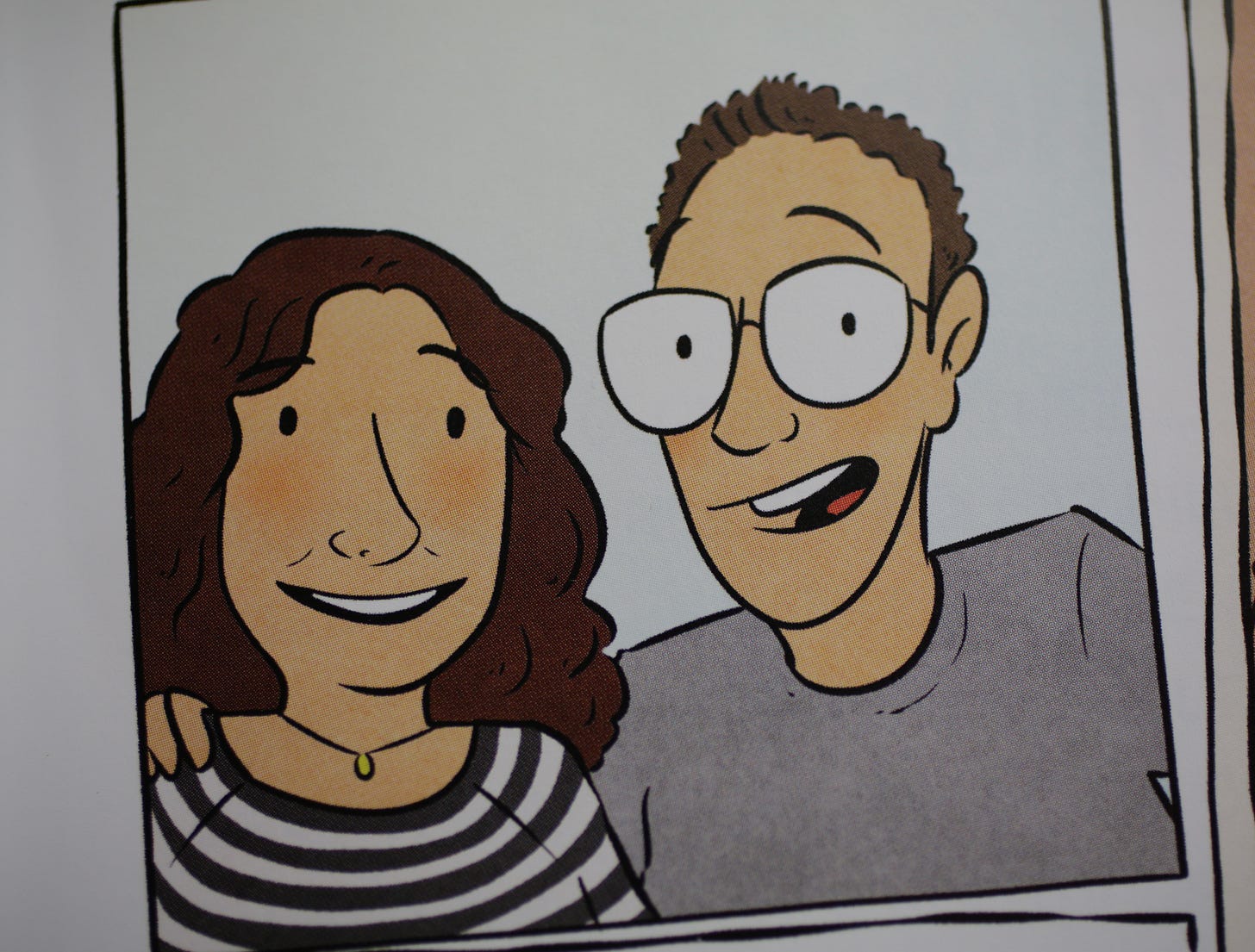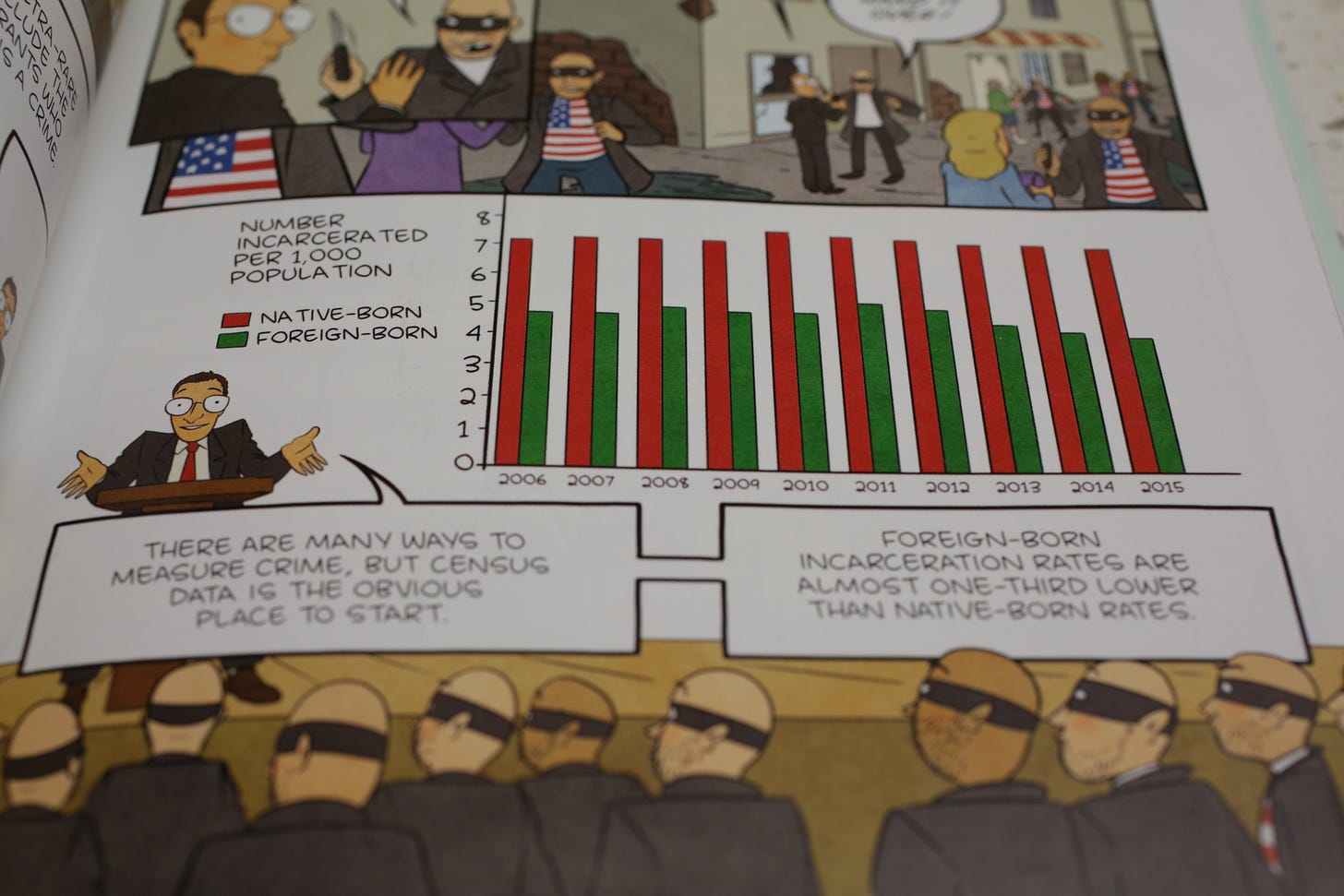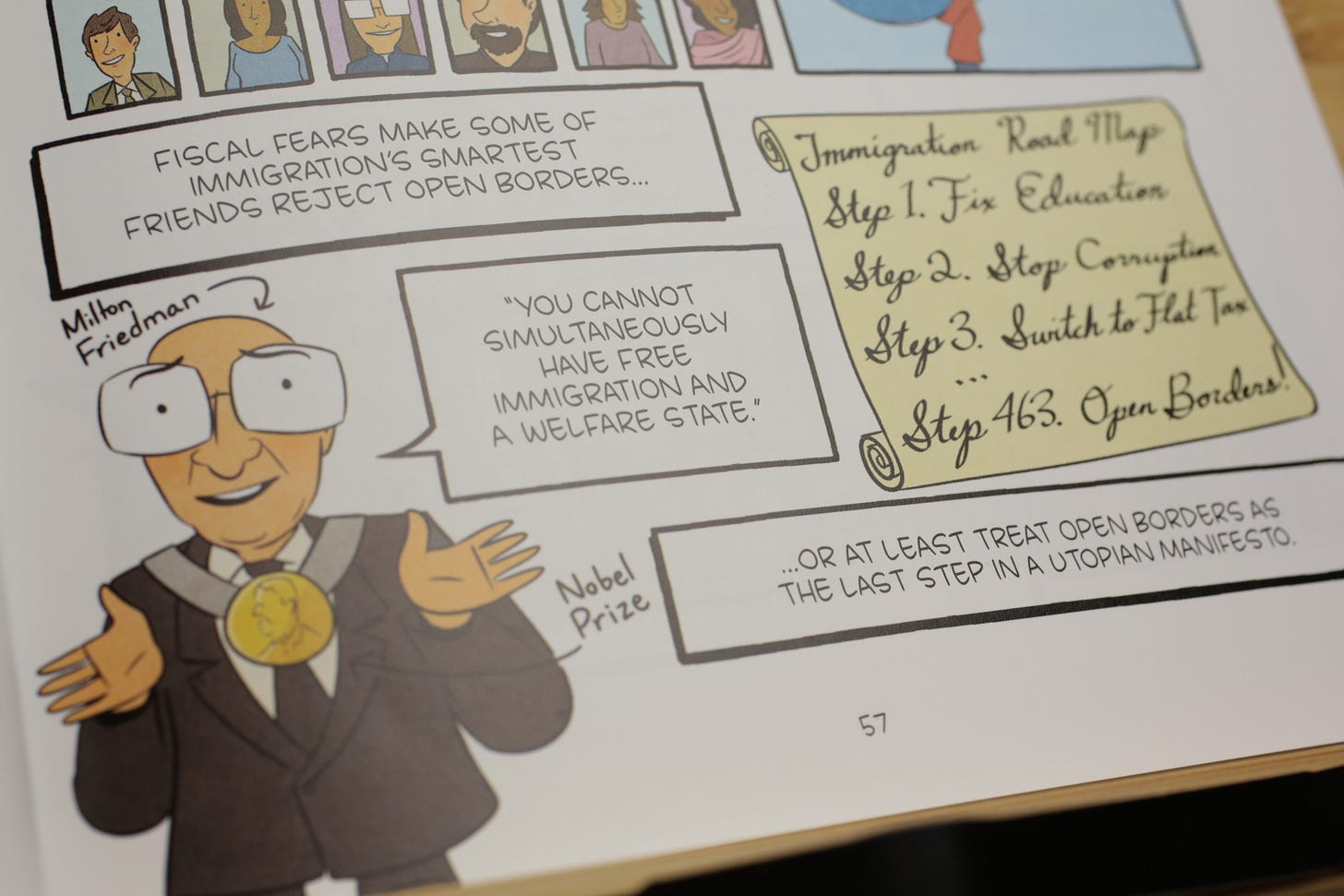Q and A with Bryan Caplan
His Disagreements with Tyler Cowen, Biggest Vice, Diagnosis of Higher Education, Advice on Writing Comic Books, and Much More.
Here’s a summary of my recent Q’s and A’s with Bryan Caplan, compiled from two separate ask-me-anything opportunities at his Substack. Except for this introduction and the conclusion at the end of this post, I’m in bold; he’s in blocked quotes.
Who is Bryan Caplan, and what is his relationship to me? I’ll get to that, but for now let’s just say that he’s a guy—somewhat of a self-help guru—who has written some interesting books over the years, a few of which I’ve read and like. And going a little further, he’s an economist who has held some neat book clubs and book discussions, my favorite being the Malcolm X book club.
And so, since I like to read and talk about books, he’s a good person to spotlight. In fact Trim to Truth is about Books, Notes and Dialogue.
So without further ado, let’s begin.
Scott - What are your biggest disagreements with Tyler Cowen? Have you ever gotten frustrated with him regarding any of these disagreements?
Tyler disagrees strongly with at least three of my books. He thinks democracies choose pretty good policies, firmly supports the mainstream human capital view of education, and supports no more than a doubling of existing immigration. Maybe no increase at all. He hasn't disagreed with me much on kids, but neither has he declared me correct.
Tyler is Panglossian by default: Either the existing world is actually good, or changing it would be so costly that we might as well live with it. This really comes out in his Big Business: In a whole book supposedly singing the glories of business, he avoids *any* mention of deregulation or privatization.
And of course Tyler was a severe Covid hawk, while I still maintain the math clearly shows that we should have done very little.
Have I ever gotten frustrated? Many times. His behavior during Covid was especially horrifying to me.
But Tyler is still my beloved friend who brings me joy whenever I see him, and who has looked out for me like a big brother for 30 years. Such is life!
Scott - What are the root causes of the biggest problems in higher education? I’ll let you choose the biggest problems.
The root cause is false belief that higher education is a good investment from a social point of view. Without that false belief, there would be little government funding, so few people would go to college, and young people could (via the magic of credential DEflation) get good jobs without college.
Massive government subsidies and the attendant credential inflation aside, the extreme leftism of academia has turned most non-STEM classes into leftist indoctrination centers. This was already bad c.1990, and now it's ridiculous.
But isn’t the over-investment in higher education a response to the failures of K-12? So causes are: A) false belief (by a large fraction of the population), and B) an attempt to make-up for learning that should have happened in primary and secondary? B is a reasonable response to poor K-12 education.
I don't think so. Only cynics think of college as remedial high school. Normal people think of college as the place where good gets even better.
You’re right about their beliefs, but they don’t realize the failures of K-12. They just think, “We need more school.” The reality is: that K-12 education is poor-to-mediocre for most, and not realizing this, they rationally continue investing in post-secondary education, as if K-12 were fine. If they experienced a productive K-12, there would be much less investment in college. College isn’t necessary for most, if the K-12 years are productive.
Scott - I think your book Open Borders is the first book of a new genre; a genre that has huge potential. Call that genre what you want. I’d like to write a book in that genre. What advice can you offer me? What are the most significant challenges to writing a book like Open Borders? It seems like finding, hiring and working with a good illustrator would be a significant challenge. How much cartooning did you do yourself to aid the illustrator? About how much can we expect to pay a good illustrator?
Step 1: Read a lot of graphic novels! Get a feel for the "grammar" and "vocabulary" of the genre. Especially read Scott McCloud's Understanding Comics and Making Comics.
Step 2: Try writing a script. Many people do it purely with text, but I strongly prefer getting software where I can do a full page-by-page mock-up/previsualization.
Step 3: Find a reliable artist who plays well with you. Easier said than done!!! If you're fortunate, you'll have a publisher to assist you, but that's mostly a pipe dream.
Step 4: Work very closely with your artist. Give panel-by-panel feedback to realize your dream.
That actually sounds fun. What software did you use?
The obsolete Comic Book Creator 2. A used copy won't even work properly on a modern PC, sadly.
Scott - When do you write? What habits help you write?
Weekdays only, roughly 10 AM-noon and 2-3 hours in the afternoon.
Scott - When do you read? What habits help you read? [It seems that Bryan read this as what do you read, instead of when do you read].
90% of the time I read what's relevant to what I'm writing so I'm genuinely knowledgeable. Other than Hanania, I'm pretty burnt out on just reading new stuff for fun.
That’s a huge compliment to Hanania.
Scott - Looking at your daily and weekly routines, in what ways are you more disciplined than your competition and to what extent does discipline play in your productivity?
I'm a steady worker rather than a hard worker. I almost never work more than 40 hours per week. But I do sit down and try to produce new content five days a week.
I am puzzled by why I accomplish so much more (at least in my own eyes) than many people who seem to work harder than me. I don't think IQ is a big factor. Mostly it's my high iconoclasm and imagination which gives me much more to say than most thinkers
Scott - What is your biggest vice?
Self-pity.
Scott - If my goal is to make the world a better place, how closely should I study the writing and thinking of Mahatma Gandhi and MLK Jr.?
I doubt that even their biggest fans think you gain much from carefully reading their words. It's all about their simple/simplistic ideas plus their legendary personal charisma. They had mass appeal because you can explain their thought in minutes.
As a non-fan, though, the best I can say is that the alternatives were probably worse.
Scott - What is the likelihood that one of Israel’s enemies will detonate a nuclear weapon over an Israeli city in the next 25 years?
I'd say about 2%. It's a vivid scenario, but you should start with "What is the likelihood that anyone will detonate a nuclear weapon over any city in the next 25 years?," then consider the probability that that city is in Israel.
Scott - A billionaire offers you 100 million dollars to start a new religion. You must first write your own Bible and build a network of churches. What does your Bible say? What would occur during your church service? How much might it cost to attend? What are the chances that your religion becomes a profitable business as well?
I guess I'd just expand on my self-help stuff and hope that counts. I'd make it like the Scott Alexander meet-ups, try to get "believers" in every city to meet regularly in-person.
Scott - What are your top ten movies that have also won Best Picture, Best Actor or other significant awards?
* 2005 - "Million Dollar Baby" * 2004 - "The Lord of the Rings: The Return of the King" * 2001 - "Gladiator" * 1998 - "Titanic" * 1996 - "Braveheart * 1993 - "Unforgiven" * 1992 - "The Silence of the Lambs" * 1985 - "Amadeus" * 1973 - "The Godfather" * 1971 - "Patton" * 1966 - "The Sound of Music" * 1963 - "Lawrence of Arabia" * 1960 - "Ben-Hur" * 1958 - "The Bridge on the River Kwai"
Scott - What can libertarians learn from the Zionist project?
Not a great role model, in my view. But perhaps: Create a counter-cultural community to raise your kids in.
Scott - What is the Christopher Rufo model for reforming or remaking higher education and to what extent are you excited or optimistic about it?
Detailed discussion here. Excited and optimistic!
Scott - What do you do for exercise? What have you learned from your research project to improve your quality of sleep?
1. During Covid, I started lifting 3-pound weights, and also got a leg extension board and a crunch-up board. 10 minutes a day with this equipment raised my appearance from the 40th percentile for my age to the 80th percentile. Amazed at how little work was required. I also walk 30-60 minutes on a typical day. This is all stuff I don't mind doing so an likely to do indefinitely.
2. The main thing I've learned is that a small dose of Nyquil (.2 cups) raises my probability of sleeping through the night from 40% to 95%. A huge gain, even if there is a small added risk of dementia from the antihistamines. (I read that literature in detail about 7 years ago).
Scott - Have you considered making primary school and/or secondary school version(s) of your book Open Borders? My nine year old and I just finished chapter 2 last night. A little too much on NPV for her; too many numbers to follow.
No, because lots of primary school students have read the real one!
Approximately how many would you guess?
>1000
Scott - To what extent is economics a coping mechanism for you?
Using "coping" in a positive sense, highly! I routinely use economics to understand how my personal problems aren't as bad as they seem, and to figure out how to respond to personal challenges. See here.
So back to the question of “Who is Bryan Caplan, and what is his relationship to me?” I’ll have to save that for another time, but very quickly, Bryan and I have certain things in common—certain likes and dislikes. We’re of similar age and grew up in similar places. We’ve experienced similar things and we have similar perspectives, though I have to say Bryan is unique.
Though I’ve always been a non-conformist, I’m a much better non-conformist than I once was. As a teen, I went out of my way to anger others with my non-conformity. Now I strive to make friends wherever I go. Which, per Mark Twain, is so weird that gratifies some people and astonishes the rest.
And finally, a reminder from Bryan’s Tucker Carlson Today appearance.









